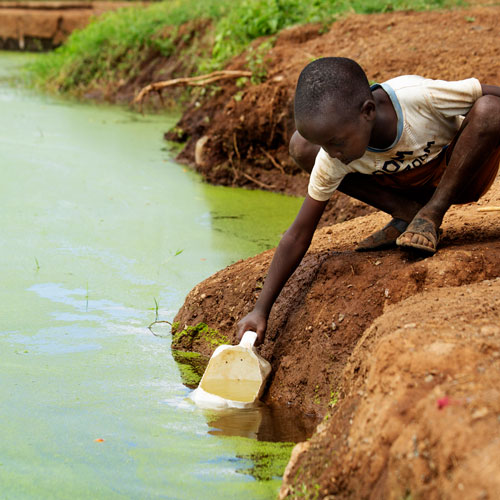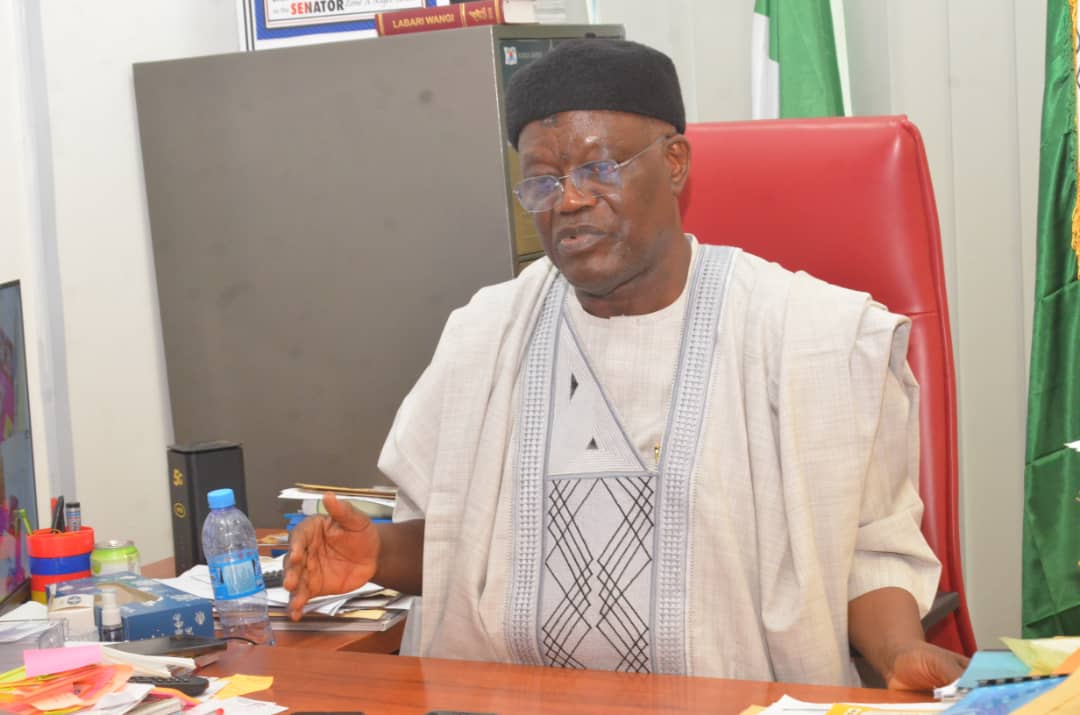New Report Uncovers Causes of Nigeria’s Water Crisis

As the world prepares to mark World Water Day 2025 on Saturday, March 22, a coalition of water justice groups in Nigeria has released a damning report exposing the root causes of the country’s worsening water crisis.
The report, titled Dry Taps: A Damning Verdict on the State of Water Utilities in Nigeria, highlights systemic failures and proposes urgent solutions to ensure access to potable water.

Sector in Crisis
The report exposes critical challenges plaguing Nigeria’s water utilities, including:
Aging and crumbling infrastructure due to years of neglect and lack of maintenance.
Severe underfunding, particularly in the purchase of essential treatment chemicals.
Erratic power supply, forcing reliance on expensive alternative power sources.
Manpower shortages and the irregular payment of workers’ salaries.
Speaking at the report’s public presentation in Abuja, AUPCTRE General Secretary, Comrade Sikiru Waheed, emphasized that although the study covered only six out of Nigeria’s 36 states, the findings provide a representative snapshot of the water crisis across the country.
“Due to limited resources, we focused on urban areas, knowing that in rural communities—where 70% of Nigerians live—access to clean water is already a lost cause. Most depend on streams, rivers, and private vendors for their daily needs,” he said.
Neglect, Mismanagement, and a Push for Privatization
The findings reveal that despite repeated government budget allocations for water projects, there is little to show for it. Philip Jakpor, Executive Director of RDI, did not mince words:
“Our investigations confirm what has been hiding in plain sight. Government at both the state and federal levels continues to allocate funds for water projects, yet nothing changes. This is a deliberate strategy to collapse public water utilities and pave the way for privatization.”
Echoing similar sentiments, EDEN’s Executive Director, Barrister Chima Williams, described the situation as alarming:
“State governments are merely paying lip service to water accessibility. How else do you explain their neglect of multi-billion naira water projects? It is shocking and deeply distressing.”
Meanwhile, CFSF Executive Director, Comrade Sani Baba, warned of dire public health consequences if the trend continues:
“If the government continues to abandon public water systems, we are heading for a health disaster of unimaginable proportions. The push for privatization, from Lagos to Kano and beyond, will ultimately serve corporate interests, not the people—especially those in rural areas.”
Case Studies: A Nationwide Breakdown
Findings from individual states paint a bleak picture:
Kano: The city’s three waterworks combined serve less than 10% of the population.
Enugu: Despite the previous administration allocating billions of naira to expand water infrastructure, there is little evidence of progress. The Enugu Water Corporation currently serves only 11,234 customers.
Oyo (Ibadan): The Eleyele Water Scheme struggles to function due to erratic power supply, relying heavily on costly generators.
Edo: The Ikpoba River Dam, once producing over 90 MGD, is now defunct, while private fish ponds have taken over parts of the site.
Kogi: The Greater Lokoja Waterworks and zonal sub-stations remain non-functional since the 2022 floods damaged them.
Lagos: Despite N760 million being allocated in 2017 to rehabilitate 48 mini and micro waterworks, most remain comatose or barely operational. The Adiyan and Iju Waterworks, once major supply sources, now function far below capacity.
Urgent Recommendations
The coalition of organizations behind the report has called on the government to take immediate action, including:
1. Declaring a state of emergency in the water sector.
2. Ensuring public participation in developing policies for universal access to water.
3. Rejecting water privatization and commodification to safeguard public interests.
READ Rivers Emergency Rule: Reps Amend President’s Executive Order as Lawmakers Express Concern
FG Cannot Fairly Prosecute Nnamdi Kanu for Terrorism Charges – Igbo Ministers Advocates
4. Upholding the human right to water as a fundamental government obligation.
5. Investigating the billions of naira allocated for water projects to uncover corruption and mismanagement.
6. Strengthening accountability in the management of water resources.
The report is a wake-up call for policymakers to act before Nigeria’s water crisis spirals further out of control, endangering millions of lives.





